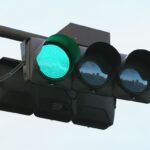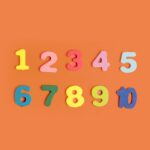
“Don’t Have To” in Japanese:〜なくてもいいです
When learning Japanese, you’ll often start by learning how to say you have to do something. But it’s just as important to know how to say you don’t have to do something!
Today, let’s dive into a very useful grammar pattern: 〜なくてもいいです
Which means:
👉 “You don’t have to ~”
👉 “It’s okay if you don’t ~”
👉 “You don’t need to ~”
✅Basic Structure
The structure is: Verb (ない-form) + くてもいいです
Let’s break it down:
| Part | Role |
|---|---|
| ない-form | plain negative form of the verb |
| ても | even if |
| いいです | it’s okay / it’s fine |
💡 Literal meaning: “Even if you don’t ~, it’s okay.”
✅Example Sentences
1. 食べなくてもいいです (Tabenakutemo iidesu) = You don’t have to eat.
💬 おなかがいっぱいなら、食べなくてもいいですよ。 (If you’re full, you don’t have to eat.)
2. 行かなくてもいいです (Ikanakutemo iidesu) = You don’t have to go.
💬 雨だから、行かなくてもいいです。 (Since it’s raining, you don’t have to go.)
3. 勉強しなくてもいいです (Benkyoo shinakutemo iidesu) = You don’t have to study.
💬 テストがないから、勉強しなくてもいいです。 (There’s no test, so you don’t have to study.)
4. 来なくてもいいです (Konakutemo iidesu) = You don’t have to come.
💬 明日は休みなので、来なくてもいいです。 (Tomorrow is a holiday, so you don’t have to come.)
✅How to Make the ない-form
To use 〜なくてもいいです, you first need the ない-form of the verb (plain negative form). Here’s how to make it depending on the verb type:
1. る-verbs
These are the easiest!
Rule: Drop the final る, and add ない.
| Verb | Meaning | ない-form |
| 食べる | to eat | 食べない |
| 見る | to see | 見ない |
| 起きる | to wake up | 起きない |
| 借りる | to borrow | 借りない |
Then → 食べなくてもいいです = You don’t have to eat.
2. う-verbs
Rule: Change the final -u sound to the corresponding -a sound, then add ない.
| Verb | Meaning | ない-form |
| 行く | to go | 行かない |
| 飲む | to drink | 飲まない |
| 話す | to speak | 話さない |
| 書く | to write | 書かない |
| 待つ | to wait | 待たない |
| 死ぬ | to die | 死なない |
| 買う | to buy | 買わない |
Note: For verbs ending in う, like 買う, the a-sound becomes わ (not あ).
買う → 買わない
Then → 行かなくてもいいです = You don’t have to go.
3. Irregular Verbs
Only two common irregular verbs to remember:
| Verb | Meaning | ない-form |
| する | to do | しない |
| ★来る | to come | 来ない |
勉強する → 勉強しなくてもいいです
来る → 来なくてもいいです
✅Tip for Beginners
Not sure if a verb is a る-verb or う-verb? Here’s a quick check:
- If it ends in 〜iru or 〜eru sound, it’s often a る-verb.
(Ex: 見る – to see, 食べる – to eat, 起きる – wake up) - But beware of exceptions!
(Ex: 走る – to run, 帰る – to go back, 切る – to cut, 知る – to get to know → う-verb, not る-verb)
✅Casual Variations
In casual conversations, drop the です or say いいよ instead:
- 〜なくてもいい → 〜なくてもいいよ
- ~なくてもいい → 〜なくても大丈夫だよ
心配しなくてもいいよ! (You don’t have to worry!)
✅Summary Chart
| English | Japanese |
| Don’t have to (polite) | ~なくてもいいです |
| Don’t have to go (casual) | ~なくてもいいよ、~なくても大丈夫だよ |
This grammar is natural, and perfect for daily conversations. Whether you’re talking to a friend or coworker, 〜なくてもいいです is a must-know phrase for expressing permission and flexibility.
📝Quiz
Q1. Choose the correct negative form to complete the sentence:
明日はテストがないから、( )もいいです。
a) 勉強し
b) 勉強しない
c) 勉強する
d) 勉強しなくて
Q2. Which of the following is an U-verb?
a) 見る
b) 食べる
c) 帰る
d) 起きる
Q3. What is the ない-form of the verb “行く (to go)” ?
a) 行ない
b) 行かない
c) 行けない
d) 行きない
Q4. Fill in the blank: お金がかかるので、( )なくてもいいです。
a) 買う
b) 買わない
c) 買い
d) 買わ
Q5. Translate this sentence into Japanese: “You don’t have to come tomorrow.”
a) 明日は来ます。
b) 明日は来ないです。
c) 明日は来なくてもいいです。
d) 明日は来てもいいです。
Answers
Q1 Answer: d) 勉強しなくて
Q2 Answer: c) 帰る
Q3 Answer: b) 行かない
Q4 Answer: d) 買わ
Q5 Answer: c) 明日は来なくてもいいです。
🌸 Want more grammar tips and real-life Japanese?
Join the NanaFam and level up your Japanese naturally with fun, useful content every week!
If you want to learn Japanese, improve your skills, or connect with native speakers and other learners, we can help. We offer one-on-one lessons, a supportive community, and on demand courses.
Website: nihongonana.com
Email: support@nihongonana.com
✅Book 1-on-1 lessons: https://nihongonana.com/lessons/
✅Join our Speaking Club: https://nihongonana.com/community/
✅Join our Course Waitlist: https://nihongonana.com/courses/





Leave Comment